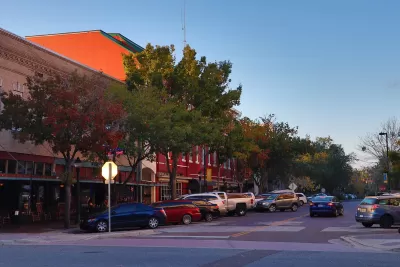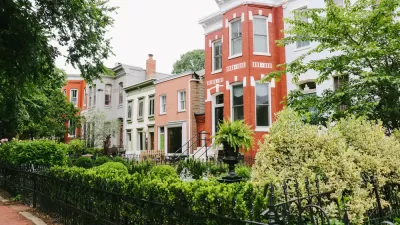The northern Florida city could follow others in removing barriers to building accessory dwelling units and multifamily buildings in neighborhoods currently zoned for single-family homes. Some local residents oppose the plan.

Updated August 8, 2022 to more accurately describe the proposed zoning changes.
A proposal backed by the mayor of Gainesville, Florida is being touted as a boost to affordable housing and equitable development, while critics say the city did not engage with the public enough before drafting the plan, according to an opinion piece by Robert Mounts.
The staff proposal would consolidate all single-family residential zoning districts into one residential zone (RZ), amend permitted uses to allow for small-scale multi-family development, reduce setback and lot size restrictions, remove occupancy limits, increase bedroom limits within the University of Florida (UF) Context Area and streamline 'lot split' regulations.
"The staff says these changes would facilitate diversification of housing types to meet increasing housing demand and allow for a more 'equitable' development pattern in Gainesville." Like similar zoning reform proposals in other cities, "RZ zoning will not eliminate single family housing as a permitted use. Rather, it would introduce the opportunity for small scale multi-family development in all residential areas, thereby providing homeowners with development options that they may choose to explore at their option." Mounts continues, "Similarly, the staff asserts that new lot size and setback requirements associated with RZ will not amend existing lot sizes but will provide development and lot-split opportunities for homeowners to explore at their discretion."
Mounts opposes the proposal, calling it "top-down" and "developer-friendly," while Gainesville's mayor has pitched it as a way to improve equity and housing affordability while allowing homeowners to make extra income from their property.
FULL STORY: Mayor Poe making a final push for 'inclusionary zoning'

Trump Administration Could Effectively End Housing Voucher Program
Federal officials are eyeing major cuts to the Section 8 program that helps millions of low-income households pay rent.

Planetizen Federal Action Tracker
A weekly monitor of how Trump’s orders and actions are impacting planners and planning in America.

Ken Jennings Launches Transit Web Series
The Jeopardy champ wants you to ride public transit.

Washington Legislature Passes Rent Increase Cap
A bill that caps rent increases at 7 percent plus inflation is headed to the governor’s desk.

From Planning to Action: How LA County Is Rethinking Climate Resilience
Chief Sustainability Officer Rita Kampalath outlines the County’s shift from planning to implementation in its climate resilience efforts, emphasizing cross-departmental coordination, updated recovery strategies, and the need for flexible funding.

New Mexico Aging Department Commits to Helping Seniors Age ‘In Place’ and ‘Autonomously’ in New Draft Plan
As New Mexico’s population of seniors continues to grow, the state’s aging department is proposing expanded initiatives to help seniors maintain their autonomy while also supporting family caregivers.
Urban Design for Planners 1: Software Tools
This six-course series explores essential urban design concepts using open source software and equips planners with the tools they need to participate fully in the urban design process.
Planning for Universal Design
Learn the tools for implementing Universal Design in planning regulations.
Heyer Gruel & Associates PA
Ada County Highway District
Institute for Housing and Urban Development Studies (IHS)
City of Grandview
Harvard GSD Executive Education
Toledo-Lucas County Plan Commissions
Salt Lake City
NYU Wagner Graduate School of Public Service





























